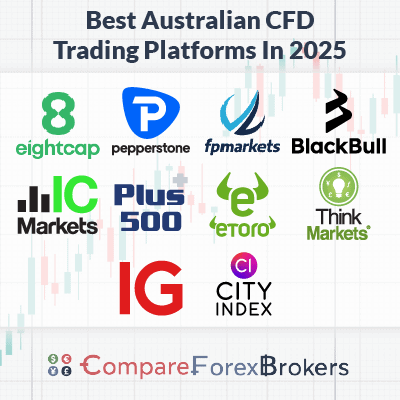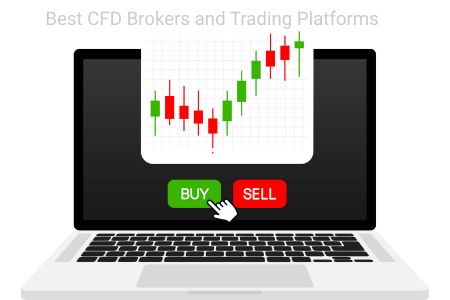
The Best CFD Trading Regulations You Should Know
When engaging in Contract for Difference (CFD) trading, understanding the regulations that govern this complex market is crucial for traders. Proper regulation ensures that trading practices are fair, transparent, and secure. In this article, we will explore the best CFD trading regulations around the world and how they protect investors. We will also delve into how these regulations affect your trading decisions and enhance your overall experience. For more information on reliable brokers, you can visit best cfd trading regulations bestbrokercfd.com.
What Are CFDs?
Contract for Difference (CFD) is a popular financial derivative that allows traders to speculate on price movements of various underlying assets without actually owning them. CFDs can be traded on various instruments, including stocks, commodities, indices, and cryptocurrencies. This derivative trading offers leveraged positions, meaning traders can open larger positions with a smaller initial outlay. However, this leverage also increases risk, making regulation essential.
The Importance of CFD Regulations
CFD regulations exist to protect traders from market abuses, fraud, and broker insolvency. Regulatory bodies enforce rules that brokers must follow, including capital requirements, operational transparency, and treatment of client funds. These regulations help create a level playing field, fostering trust and confidence in the financial markets.
Key Regulatory Bodies for CFD Trading
Several key regulatory bodies oversee CFD trading in different regions. Each organization has a unique set of rules and requirements designed to protect traders and maintain market integrity. Here are some of the most prominent regulatory bodies:
1. Financial Conduct Authority (FCA) – United Kingdom
The FCA is one of the most respected financial regulators in the world. It oversees more than 58,000 firms and has strict rules for CFD brokers operating in the UK. FCA regulations include protecting investor funds by enforcing segregation of assets, ensuring that brokers maintain sufficient capital, and implementing measures to mitigate client losses through leverage limits.
2. Australian Securities and Investments Commission (ASIC) – Australia
ASIC governs financial markets in Australia, including CFD trading. Its regulations require brokers to hold specific licensing, adhere to financial reporting standards, and maintain sufficient reserves. ASIC also places limits on leverage to safeguard retail traders from significant losses, demonstrating its commitment to protecting investors.

3. Cyprus Securities and Exchange Commission (CySEC) – Cyprus
As a member of the European Union, CySEC follows MiFID II regulations, which provide a regulatory framework for financial services across Europe. CySEC-licensed brokers must comply with stringent rules concerning operational transparency, financial reporting, and investor protection measures. This regulatory body plays an essential role in maintaining standards for CFD trading in Europe.
4. Securities and Exchange Commission (SEC) – United States
Although CFD trading is not as prevalent in the U.S. market, the SEC oversees securities and financial markets in the country. Traders interested in CFD-like products must adhere to strict regulatory requirements, making the trading environment in the U.S. more challenging for CFD brokers compared to other regions. This rigorous oversight contributes to a safer trading landscape.
Understanding the Impact of Regulations on CFD Trading
Regulations significantly impact CFD trading by ensuring safety and reliability in the market. Here are a few ways they influence the trading experience:
1. Enhanced Safety and Security
Regulatory measures protect traders’ funds by ensuring brokers adhere to strict financial practices, such as segregation of client funds and maintenance of necessary reserves. This level of oversight minimizes the risk of broker insolvency, enhancing safety for traders.
2. Transparency in Trading Practices
Regulations promote transparency in trading practices, helping traders to understand the terms, costs, and risks involved in CFD trading. Brokers are required to provide clear information about their services, fees, and trading conditions, enabling traders to make informed decisions.
3. Limits on Leverage
One of the most critical aspects of CFD regulations is the limitation on leverage for retail traders. This measure helps to prevent significant losses and encourages responsible trading behaviors. For instance, the European Securities and Markets Authority (ESMA) has established leverage limits that vary based on asset classes, promoting a more balanced approach to trading.

Best Practices for Choosing CFD Brokers
While understanding regulations is crucial, trading successfully also involves selecting the right CFD broker. Here are some best practices when choosing a broker:
1. Ensure Proper Regulation
Before opening an account, verify that the broker is registered with a reputable regulatory authority. This information is typically found on the broker’s website and should indicate the licensing details and regulatory framework under which they operate. Always choose brokers regulated by established authorities such as the FCA, ASIC, or CySEC.
2. Review Fees and Commissions
Different brokers have different fee structures. Some may offer lower spreads but higher commissions or vice versa. It’s essential to understand these fees and how they affect your potential profitability. A broker’s pricing transparency can also indicate their overall reliability and honesty.
3. Evaluate the Trading Platform
The trading platform provided by your broker can significantly impact your trading experience. Look for platforms that are user-friendly, feature-rich, and reliable. Ensure they offer the necessary technical analysis tools and charting capabilities that suit your trading style.
4. Test Customer Support
Efficient customer support is vital for resolving issues that may arise while trading. Reach out to the broker’s support team to assess their responsiveness and accessibility. A reliable broker should offer various channels for support, such as chat, email, and phone options.
Conclusion
Understanding the best CFD trading regulations and their implications on the trading landscape is crucial for any investor looking to engage in this market. Regulations work to protect traders from fraud, ensure fair trading practices, and enhance the overall safety of trading experiences. Choosing a well-regulated broker while being aware of the established guidelines will ultimately empower traders to navigate the complex world of CFD trading successfully. Always stay informed about regulatory changes and choose brokers that align with your trading goals for a rewarding trading journey.
